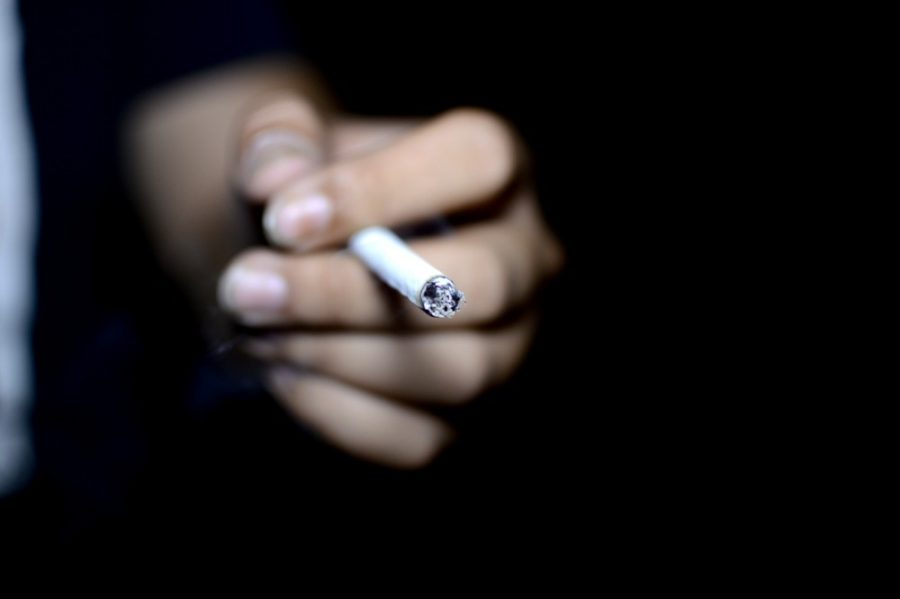The UA has added electronic cigarettes to the list of tobacco and nicotine-containing products which are banned from being on campus.
The UA Faculty Senate voted in favor of banning the use of e-cigarettes at their first meeting of the fall semester on Sept. 13. No citations, however, will be given to students violating this law. The law is merely expected to be followed out of respect for the university.
The UA became a smoke and tobacco-free environment on Aug. 25, 2014. The recommendation of banning electronic cigarettes, or e-cigarettes, on campus began in April. Since then, UA task force members have been discussing and researching on this subject.
“I think it was important because there is so little that is known for sure about the health effects of e-cigarettes and the second-hand vapor that they produce,” said Judith Gordon, task force member and associate professor of family and community medicine. “We need to be cautious and careful about whether or not these e-cigarettes are allowed on our campus.”
The task force researched policies at other universities, e-cigarette use among college students and the health effects of e-cigarettes.
The task force’s reasons for banning electronic cigarette use included the following:
- E-cigarettes may affect the health and well-being of students, faculty, staff and community members who either use them or are exposed to their vapor
- E-cigarettes are not proven to be a safe and effective method for quitting smoking
- E-cigarette use can prevent the enforcement of university tobacco and drug policies
- E-cigarette use has become a significant public health concern
“For law enforcement purposes, it’s difficult to discern what’s in these e-cigarettes—you can use a variety of things,” said Tracy Crane, task force member and manager of clinical services from the College of Public Health. “It’s difficult [for] law enforcement to make the judgment of whether one [is] using tobacco products or anything illegal.”
READ: UA Faculty Senate holds first meeting of the year
Members of the review task force started the effort is an attempt to be better safe than sorry. As of now, 11 out of 15 Arizona Board of Regents-identified peer universities have banned e-cigarette use, according to task force findings.
“The little research that has been done seems to indicate the that the ingredients in e-cigarette liquid and the vapor that is produced can be very harmful to health,” Gordon said. “Until we really know whether the use of e-cigarettes and the second-hand vapor are harmless, we need to be cautious about allowing those potentially toxic ingredients to be on campus and inhaled by bystanders.”
Clark Lantz, UA public health and cellular and molecular medicine professor, said that his role in the task force consisted of studying what happens with chemicals in e-cigarettes and human exposure to them.
“I think that some of the concerns were that people that weren’t even using the e-cigarettes could be exposed to the constituents that were in them,” Lantz said. “There are thousands of different additives in these e-cigarettes and they all haven’t been tested for toxicity, so we don’t know what adverse health effects they might have.”
There are more than 450 different e-cigarette products with greater than 7,500 flavors available for sale, which are mostly of unknown toxicity. Regulation is often limited by the FDA, due to lack of knowledge of direct toxicity, according to the task force findings.
“There is a great deal of research being done on e-cigarettes all across the country on the ingredients, on whether or not e-cigarettes can serve as a gateway among youth to then go on to use conventional tobacco products and if e-cigarettes are an effective method to quitting smoking,” Gordon said. “Sixty years ago, people thought smoking cigarettes was a healthy thing to do—you could even see physicians in advertisements for cigarettes at that time. It wasn’t until the 1950s that we started to realize how incredibly harmful smoking was and it wasn’t until later that we realized that second-hand smoke was extremely harmful to people. Until we know for sure, we really need to be cautious.”
Follow Angela Martinez on Twitter.









